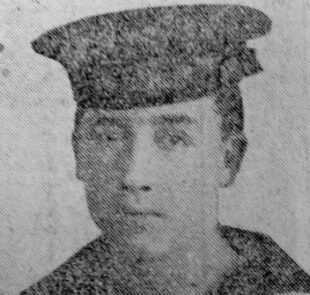William Barker

It is interesting to know that Mexborough was represented in the great sea battle off Jutland on May 31 – June 1, and in the person of a ship boy, William Barker, son of Mr Henry Barker, of 8, Ferryboat Lane, Mexborough.
Barker was listed in the Navy last July, and was trained on the “Ganges”.
He was appointed to another HMS, a light cruiser, of new and powerful design, about two months ago. Returning to dock after the battle, he was granted three days leave and on Tuesday a “Times” man interviewed him and heard the following interest account of his experiences:
“We have been in harbour a week or so, off and on, and after recalling ship and taking in provisions, we prepared for see again.
There was a boxing match at night (Saturday, May 27) and on Sunday it was rumoured that the German Fleet was likely to come out.
On Monday we stood out to sea, and things to their normal course until Tuesday afternoon, about 4 o’clock. Then we were sounded to action, but after we reported at our war stations we were dismissed to tea.
After tea at about 515 action were sounded again – the real thing this time – and once again we sprang to war stations.
‘Enemy in sight’ was signalled and we sailed in. I should tell you that I am a site setter on the starboard side. We opened fire, but for some minutes we did not encounter a ship, and we slackened off. I ought to have explained that we were leading Sir David Beatty’s battle cruiser squadron. We quietened down a little and ceased fire, but our big ships were firing heavily all the time. The enemy for a time were mere specks on the horizon, and we in the turrets could not even distinguish their nationality.
But as we approached we soon saw definite signs of battle. We sailed by two German destroyers which were in flames, and we saw them sink beneath the waves. Then, while daylight lasted, we were in the midst of heavy fire, and I cannot say what happened. We could only see for a very short distance, and we just went on with our duty. We were hit a good many times, but fortunately not vitally, although some very heavy metal came across us. We were going at a terrific speed. We out through the German fleet twice, and whirled around and cut through again. It is wonderful that we should have escaped so lightly.
“Towards sunset we became aware that two enemy destroyers were making a dead set at us, and were trying to track us down. We were standing silhouetted against the sunset, and they were lying in the shadow. We were cruising at a tremendous speed, so that whenever we swerved in our course we heeled hard over and were washed by heavy waves. The sea was choppy, rather than rough. One big wash caught me and threw me into the gun. I thought my leg must be broken, for I could not rise and felt very sick. My mates picked me up and carry me down to the third deck, where I spent the remainder of the action. What happened subsequently I learned from my mates.”
As soon as night fell, the two destroyers I mentioned closing in and attacked us, throwing their search sites across us. We were at a disadvantage, and it might have gone hard with us but for another light cruiser, which followed us up, and threw her searchlights across our opponent, who then transfered their intentions to the newcomer. However, as soon as they had taken their search sites of us we through hours onto them, and in a surprisingly short short time we and the light cruiser had pounded the two Germans to bits.
Nothing very exciting happened in the rest of the night, and sometime the following morning we drew out of action and steamed into harbour, but slightly scarred, and with about five killed and 20 wounded on board. We did not stay in the long, but repaired to dark to have our injuries dressed.”
The youngster concluded his narrative with a tribute to Adml Beatty. “He is a grand man,” said the boy, enthusiastically; “so stern, but so strong. I feel absolutely safe when I am in his squadron.”